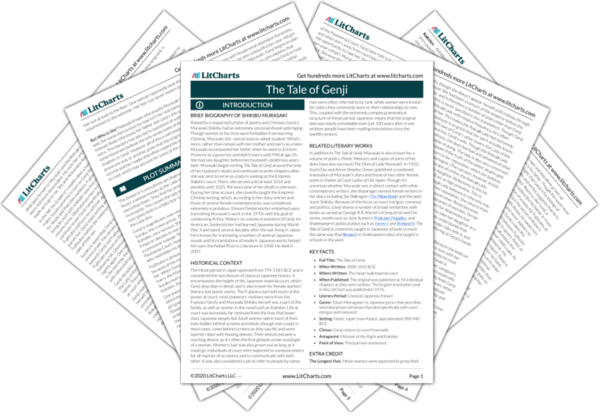The Rokujō Lady is one of Genji's first lovers, though she doesn't appear herself until midway through the novel. She had been a consort of the emperor before the Emperor and is therefore a number of years older than Genji (though this is never specified in this translation). Though Genji sees the Rokujō Lady with relative frequency, he's often neglectful of her. This makes the Rokujō Lady feel extremely jealous. Her jealousy is so great that her spirit actually leaves her body and kills two of Genji's other lovers: the Lady of the Evening Faces and Aoi, Genji's wife. Though the Rokujō Lady recognizes her jealousy, she does feel bad and ashamed of what her jealousy is capable of doing. The lady is also very concerned about what might happen if the truth of the ladies' deaths gets out; her primary concern is her reputation, which she believes would be irreparably damaged. (The narrator, however, insists that this isn't true.) To escape all of this, the Rokujō Lady decides to accompany her daughter Akikonomu to the Ise shrine, where the latter will act as high priestess. This is unprecedented, but the Rokujō Lady believes it's the only way to escape Genji and preserve her reputation. She returns from the shrine near the end of the novel when Reizei becomes emperor, though she promptly becomes ill and dies. On her deathbed, she asks for Genji to care for Akikonomu but specifies that she doesn't want him to take her daughter as a lover. This shows that the Rokujō Lady understands that becoming involved with Genji brings major risks with it, and she'd like to save her daughter from suffering at Genji's hands as she did.
